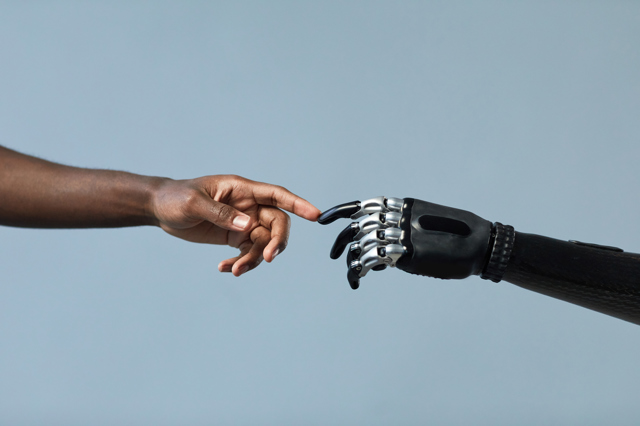< Back to news



30 November 2023
AI system helps spot early-stage oesophageal cancer
A new AI system can help endoscopists recognise oesophageal cancer early, according to a study by Amsterdam UMC and TU Eindhoven. "The earlier you recognise oesophageal cancer, the better the outcome for the patient," said Jacques Bergman, professor of endoscopy at Amsterdam UMC. "We are therefore very happy with this help from artificial intelligence."
The results were published today in The Lancet Digital Health. For this study, the endoscope used by the endoscopist to look into the patient's oesophagus was connected to the AI system that assesses the images during treatment. This form of artificial intelligence was developed specifically for patients with what is known as Barrett's oesophagus. These patients have an increased risk of oesophageal cancer. Because of subtle changes, oesophageal cancer is very difficult to recognise in them and doctors regularly miss it. The patients therefore receive endoscopic research once every few years. With AI help for better recognition, there will be more certainty for these patients.
Instantly seen on screen
A unique feature of this system is that - during the endoscopic research - it can recognise oesophageal cancer on the endoscopy screen. More than 100 endoscopists from different countries tested the system with video images on a computer. When assisted by the AI system, endoscopists were significantly more likely to recognise an early form of oesophageal cancer: in 79% of cases, compared with 67% of cases without assistance.
International experts
The system's accuracy was also compared with that of international experts: endoscopists specialising in this type of cancer. It was found that the system recognised oesophageal cancer about as often as these experts. With the results of the study, the researchers hope that AI's help can be used as soon as possible in endoscopic research among patients with Barrett's oesophagus.
This project was conducted by an international consortium of 15 hospitals, led by Amsterdam UMC and TU Eindhoven.
Vergelijkbaar >
Similar news items

7 December 2024
Booking.com in the top 3 of the Dutch R&D Top 30
Great news! Booking.com is now in the top 3 of the Dutch R&D Top 30, with nearly €420 million in R&D investments. Our significant contributions to research and development, including investments in AI, are making a substantial impact on the innovation strength of the Netherlands.
read more >

6 December 2024
ELLIS Unit Amsterdam Hosts Third Annual NeurIPS Fest
On November 28, 2024, the ELLIS Unit Amsterdam hosted its third annual NeurIPS Fest at LAB42, attracting 120 participants and showcasing 25 posters. Co-organized with the ELLIS Units in Nijmegen and Delft, the event brought together AI/ML researchers from across the Netherlands for a vibrant and collaborative gathering.
read more >

6 December 2024
Advanced AI for Surveillance Robots
At LAB42, their addressing tomorrow’s challenges today. One pressing question is: how can we tackle the growing staff shortage in security?
read more >